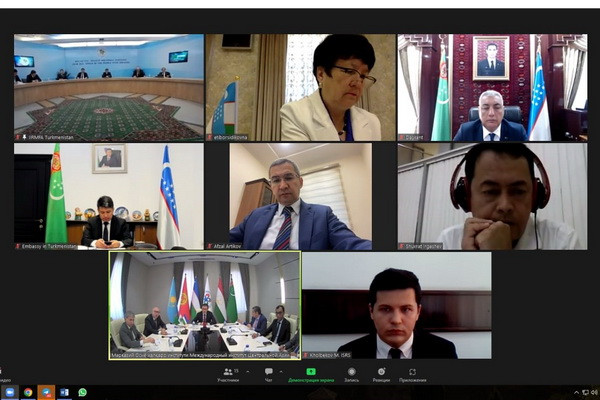
Trans-regional projects to contribute to the achievement of lasting peace in Afghanistan
Tashkent, Uzbekistan (UzDaily.com) -- One of the main factors for ensuring security and comprehensive development of Central Asia is the achievement of sustainable peace and stability in Afghanistan - this was the message of the speech of the chief researcher of the Institute for Strategic and Interregional Studies Mukhriddin Kholbekov, who took part in the International conference: "Priorities for the peaceful and sustainable development of Central Asia: the approaches of Uzbekistan and Turkmenistan."
During his speech, the expert drew attention to the calls of the President of the Republic of Uzbekistan Shavkat Mirziyoyev to join forces to prevent a protracted crisis in Afghanistan, since this state is an integral part of our region.
In this context, Mukhriddin Kholbekov focused on the importance of joint implementation of trans-regional projects, including railways, gas pipelines and power lines, which will lay the foundation for the restoration of the peaceful economy of Afghanistan and will help strengthen the social base of the peace process there. These major "anchor" projects can act as a trigger for the economic development of Afghanistan, they can pull other key areas of the Afghan economy along with them.
On the other hand, according to the ISMI expert, these projects will strengthen the interaction of the countries of the region interested in increasing the well-being and security of their peoples, in achieving lasting peace and stability in Afghanistan.
All these projects will allow Afghanistan to become an active participant in trans-regional trade and economic ties, take advantage of opportunities to develop its own economy and increase the export of domestic goods to neighboring countries.
The event was organized by the International Institute of Central Asia jointly with the Institute of International Relations of the Ministry of Foreign Affairs of Turkmenistan and the Scientific Center for Strategic Studies at the Institute of International Relations of the Ministry of Foreign Affairs of Turkmenistan (NCSR). More than 40 experts from the two countries took part in it.
The main goal of the conference was to discuss the current situation in Central Asia, identify key challenges and threats to the stable development of the two states and the region as a whole, as well as develop specific proposals for building policies in the new conditions and strengthening regional dialogue and cooperation.